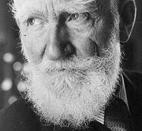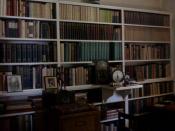The society at the end of the 19th and at the beginning of the 20st century, as well as later on, began to face, whether they wanted or not, startling phenomena that were confronting the reality in which people were brought up, they read books about, were taught, that the Church was spreading and the government was enforcing. To be more concrete these "phenomena", e.g. improvement of women's position in the society, attempts for liberation of literature from the clutches of censorship or warnings against the reserve so typical of the public life, form an opposition to the stereotypes, customs and traditions that were embracing the reality in those times. In this essay I discuss how the play Mrs. Warren's Profession is intertwined with these changes, stereotypes and controversies characteristic for that period and how it contributes to it.
The play was written in 1894 but was not performed until 1902.
Originally it was banned by the official theatre censor Lord Chamberlain because of its vivid discussion and depiction of prostitution, among other things under which the society's foundations trembled. Shaw stated in The Author's Apology that he had seen a couple of plays depending wholly on coarse humour and incidents of sex carried out to an extreme point which were neither forbidden nor struck down by stern criticism, "whereas plays in which these humours and fascinations are discarded, and the social problems created by sex seriously faced and dealt with, inevitably ignore the official formula," [the "requirements" a work needs to have in order to be banned] "and are suppressed" [the case of Mrs. Warren's profession] (Shaw, 11). But how come the shallower plays had a much better reception than the concious one? Reasons may vary but if we take the character of the British (the reserve, conservatism) into...


